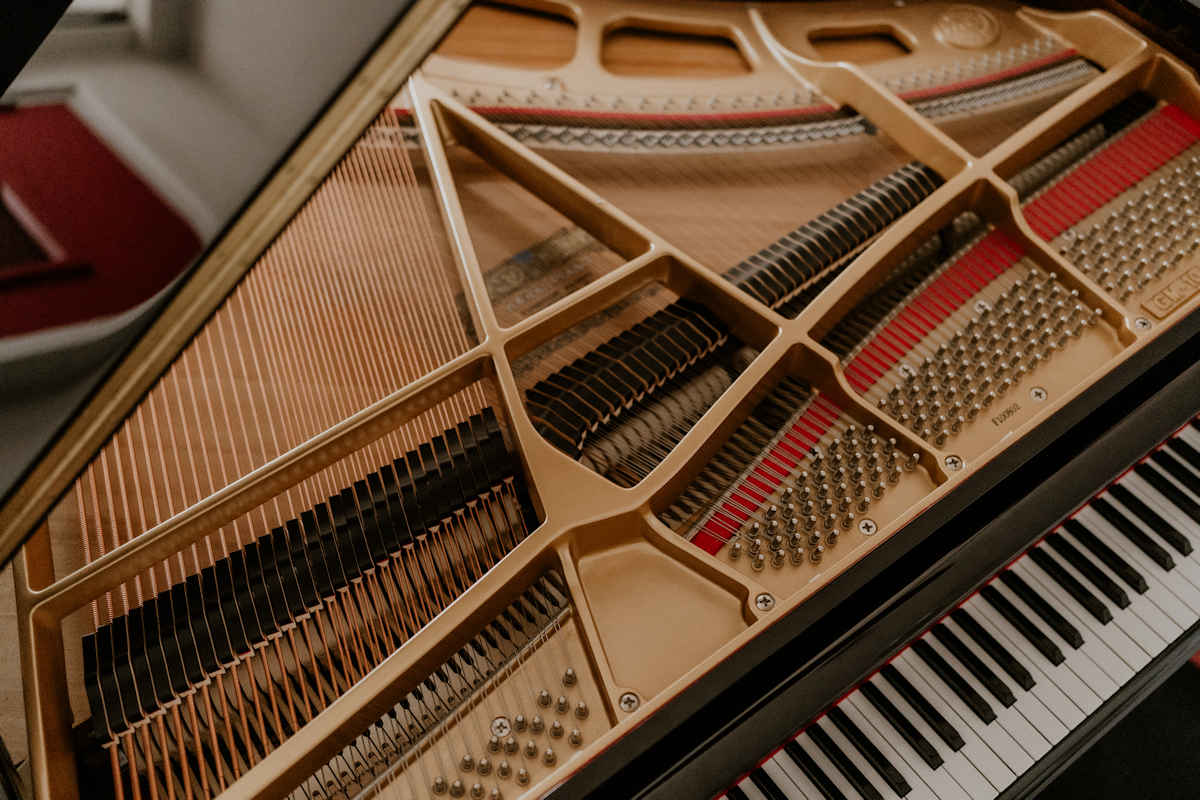Our music appreciation classes have now been expanded to include three sessions:
Each session is independent so why not try one out?
Music Appreciation (Friday @Semitone)
Advanced Music Appreciation (Wednesday online)
Have you ever wanted to know more about classical music but felt too intimidated to ask? Have you ever been at a concert and enjoyed it, but felt like you didn't totally know what was going on?
Or, are you a classical music enthusiast who wants to know more about your favourite works, or explore some pieces you haven't heard before?

Semitone's music appreciation classes might be for you. It's informed, but informal; complete but casual. If you want to develop a better appreciation of classical music, then you have to listen to it. Peter introduces each piece by saying something about the composer's place in the development of music, how the piece came to be written and what to listen out for before we listen to it. We listen together, and share our own reactions to each piece.
For any questions about music appreciation classes, please email info@semitonestudios.com or ring 07715 643110.
Music Appreciation
This course is for everyone - you needn't have any prior knowledge of classical music in order to fully enjoy this course.
Day/Time/Location:
Friday/10:30am-12pm/@Semitone Studios
Cost: £84 for all twelve sessions or £8 for each individual session.
(If the cost is a hardship, please let us know and you may pay what you can afford.)
Friday 4 April: Antonio Vivaldi, Gloria in D major, RV589, probably written in 1715, one of at least three settings of the Gloria by Vivaldi and possibly his most popular choral piece
Friday 11 April: Joseph Haydn, Symphony No 85 in B flat major La Reine, one of the six symphonies commissioned for Paris in 1784, a favourite of Marie Antoinette (hence the name)
Friday 18 April: Good Friday: no session
Friday 25 April: Louise Farrenc, Symphony No 3 in G minor, Opus 36, first performed in Paris in 1849 and the last of her works for full orchestra
Friday 2 May: Pyotr Tchaikovsky, Variations on a rococo theme, Opus 33, written for a fellow-professor at the Moscow Conservatory and first performed by him in 1877
Friday 9 May: Antonín Dvořák, Symphony No 7 in D minor. Opus 70, first performed in London in April 1885, a commission by the Royal Philharmonic Society
Friday 16 May: William Grant Still: Symphony No 2 in G minor Symphony of a New Race, first performed by the Philadelphia Orchestra conducted by Leopold Stokowski
Friday 23 May: Jan Dismas Zelenka, Te Deum, ZWV 146, the second of the two settings of the Te Deum by this Bohemian contemporary of JS Bach who lived and worked in Dresden
Friday 30 May: Wolfgang Amadeus Mozart, Piano concerto No 22 in E flat major, written at the end of 1785, the first of Mozart’s concertos to use clarinets in the orchestra
Friday 6 June: Emilie Mayer, Symphony in F minor (sometimes called No 5 and sometimes No 7), one of her eight symphonies, first performed in Berlin in 1872
Friday 13 June: Johannes Brahms, two settings of verses by Goethe: The Alto Rhapsody, Opus 53 and Gesang der Parzen (Song of the Fates), Opus 84
Friday 20 June: Arnold Bax, Symphony No 2 in E minor and C major, first performed in 1929 by the Boston Symphony Orchestra conducted by Serge Koussevitsky for whom it was written
Friday 27 June: Ralph Vaughan Williams, Symphony No 9 in E minor, his last symphony written when he was 84, inspired by Thomas Hardy's Tess of the d'Urbervilles
Advanced Music Appreciation
This course is for listeners who have at least basic knowledge of classical music - terminology, form, etc. Please enquire if you are unsure.
Day/Time/Location: Wednesday/2:00pm-4:00pm/Online via Zoom
Cost: £80 for all eight sessions or £12 for an individual session.
(If the cost is a hardship, please let us know and you may pay what you can afford.)
These online sessions set out to explore a range of classical music composed over the past three hundred years or so, including music in a variety of genres: orchestral, instrumental, choral and songs. The aim is to include some well-known pieces but also to explore less familiar repertoire; there is such a wealth of music that we do not normally hear. The theme for each course is chosen to provide a framework for this. Pieces will be introduced and then we will listen to them and share reactions.
This short course of eight sessions will explore the music which was new in eight particular years, thirty years apart, possibly written that year or first performed in that year. We will probably listen to some music other than those listed below which are just given to provide context.
Wednesday 23 April: 1750 when Johann Sebastian Bach died, usually considered the end of the baroque period, Handel was still active in London, CPE Bach wrote his cello concerto in A minor, Haydn at eighteen embarked on a career in Vienna as a freelance musician, Salieri born.
Wednesday 30 April: 1780 when Haydn and Mozart composed symphonies, Mozart composed his opera Idomeneo, keyboard music by CPE Bach and JC Bach, chamber music by Boccherini, concertos by Stamitz, keyboard sonatas by Cherubin and Clementi.
Wednesday 7 May: 1810 when Beethoven wrote incidental music for Goethe’s play Egmont, his string quartet in F minor (Serioso), Bagatelle No 25 (Für Elise) and his piano sonata Les Adieux, Rossini wrote his opera La cambiale di matrimonio, Chopin and Robert Schumann born.
Wednesday 14 May: 1840 which was Robert Schumann’s ‘year of song’, Berlioz composed his Grande symphonie funèbre et triomphale, Mendelssohn performed JS Bach’s Toccata and Fugue in D minor for the first time since Bach’s death, Tchaikovsky born, Paganini died.
Wednesday 21 May: 1870 when Wagner’s opera Die Walküre, Tchaikovsky’s fantasy overture Romeo and Juliet, Delibes’ Coppélia, Brahms Alto Rhapsody and Sullivan’s Overture di Ballo had their first performances, Franz Lehár born.
Wednesday 28 May: 1900 when Elgar’s The Dream of Gerontius, Sibelius’s Finlandia, Mahler’s fourth symphony, and Coleridge-Taylor’s Hiawatha’s Departure were completed or premiered, Kurt Weill and Aaron Copland born.
Wednesday 4 June: 1930 when Stravinsky’s Symphony of Psalms, Ravel’s Piano concerto for the left hand, Villa-Lobos’s Bachianas Brasileiras, nos 1 & 2, Holst’s Choral Fantasia were premiered, Stephen Sondheim born, Peter Warlock died.
Wednesday 11 June: 1960 when Shostakovich’s seventh and eighth quartets, Walton’s second symphony, Arnold’s fourth symphony were premiered, British premiere of Shostakovich’s first cello concerto, George Benjamin born.
